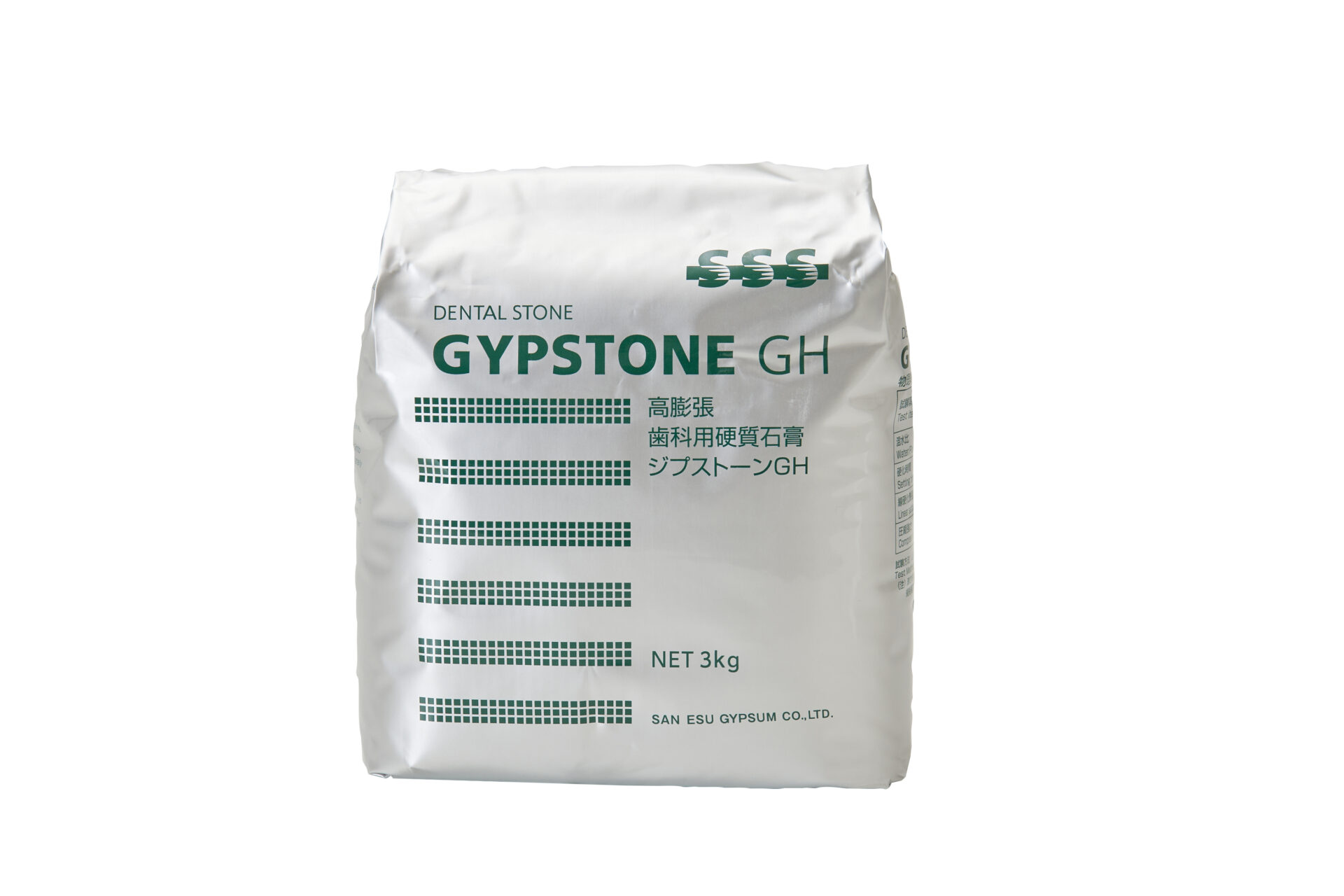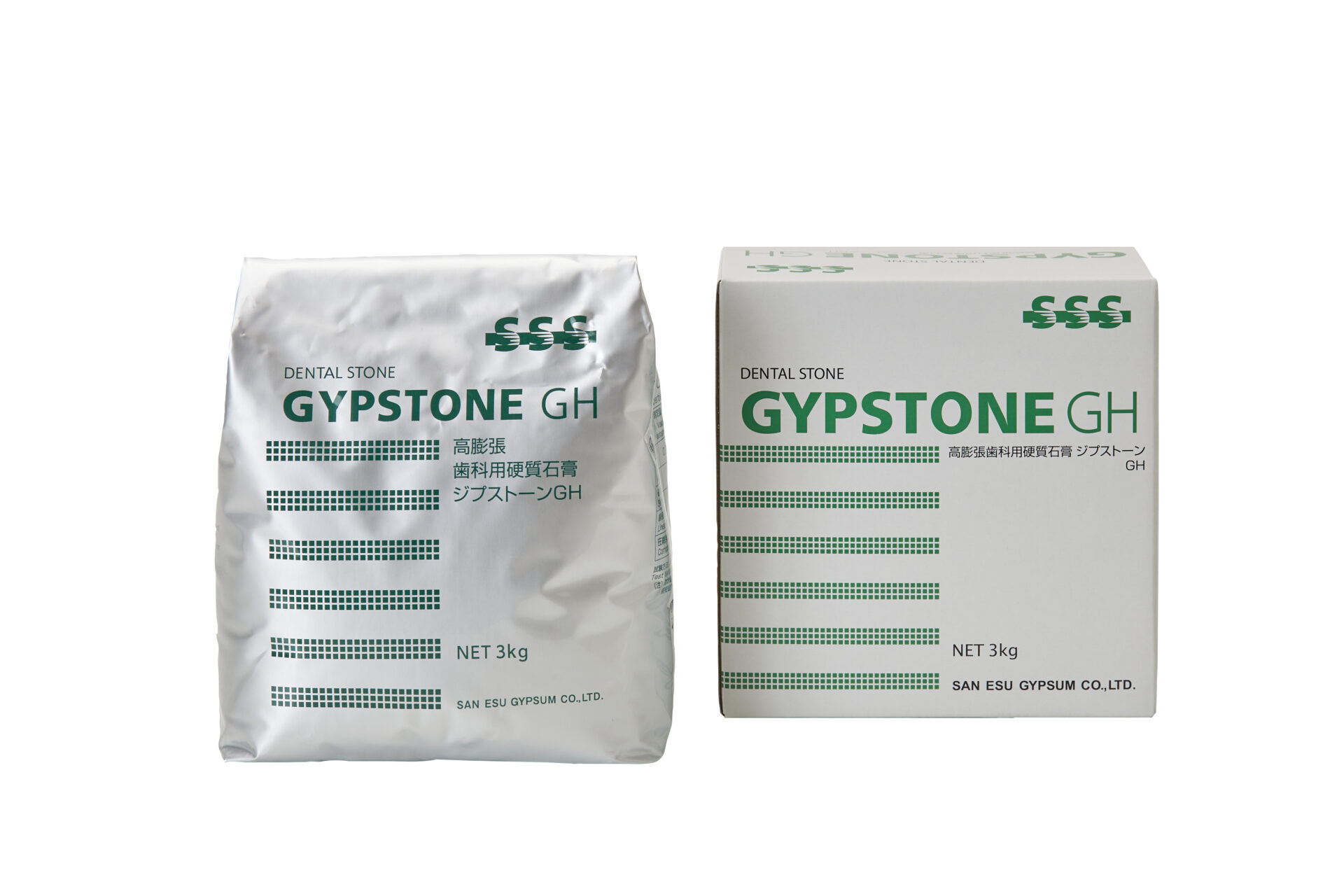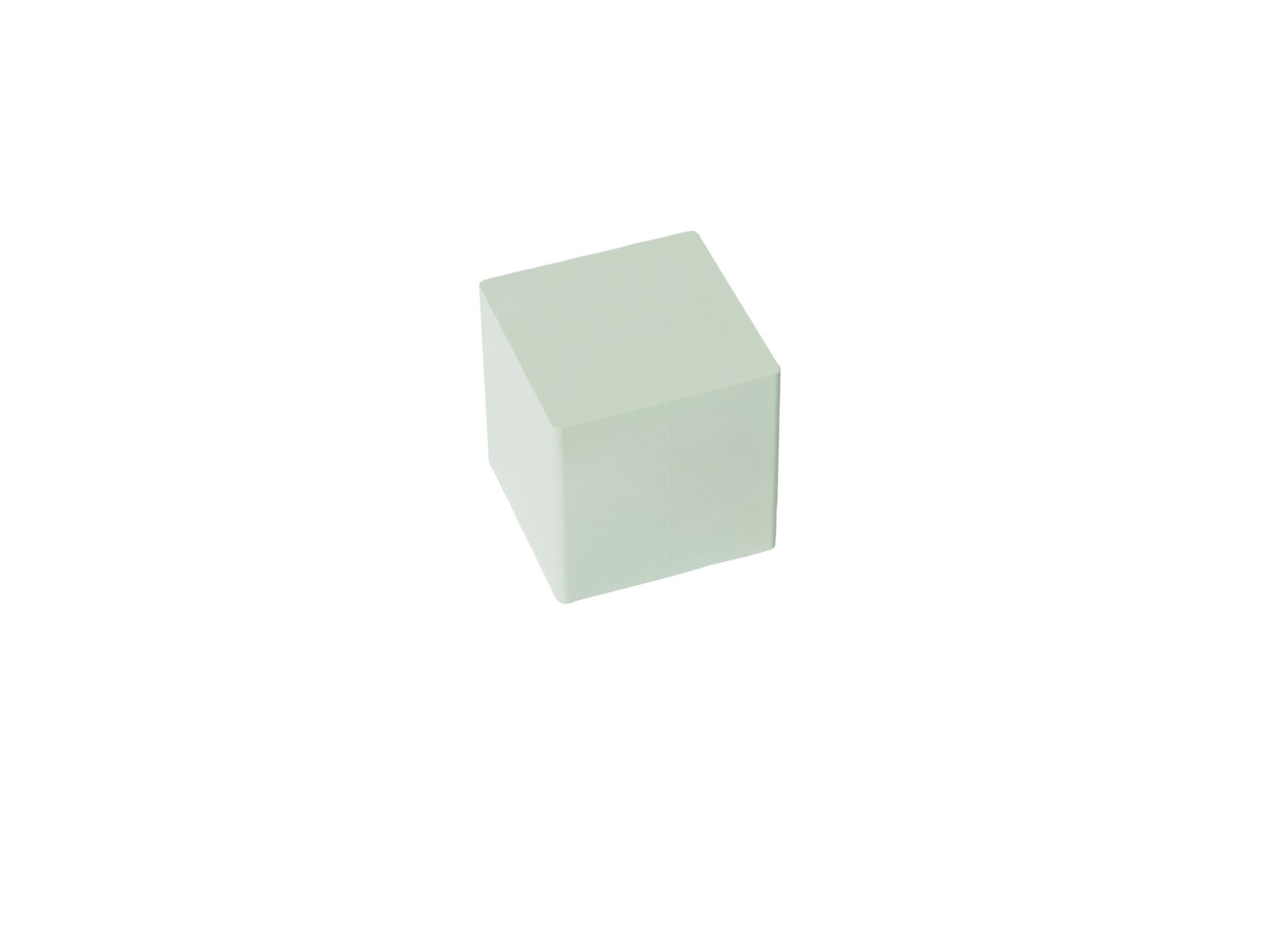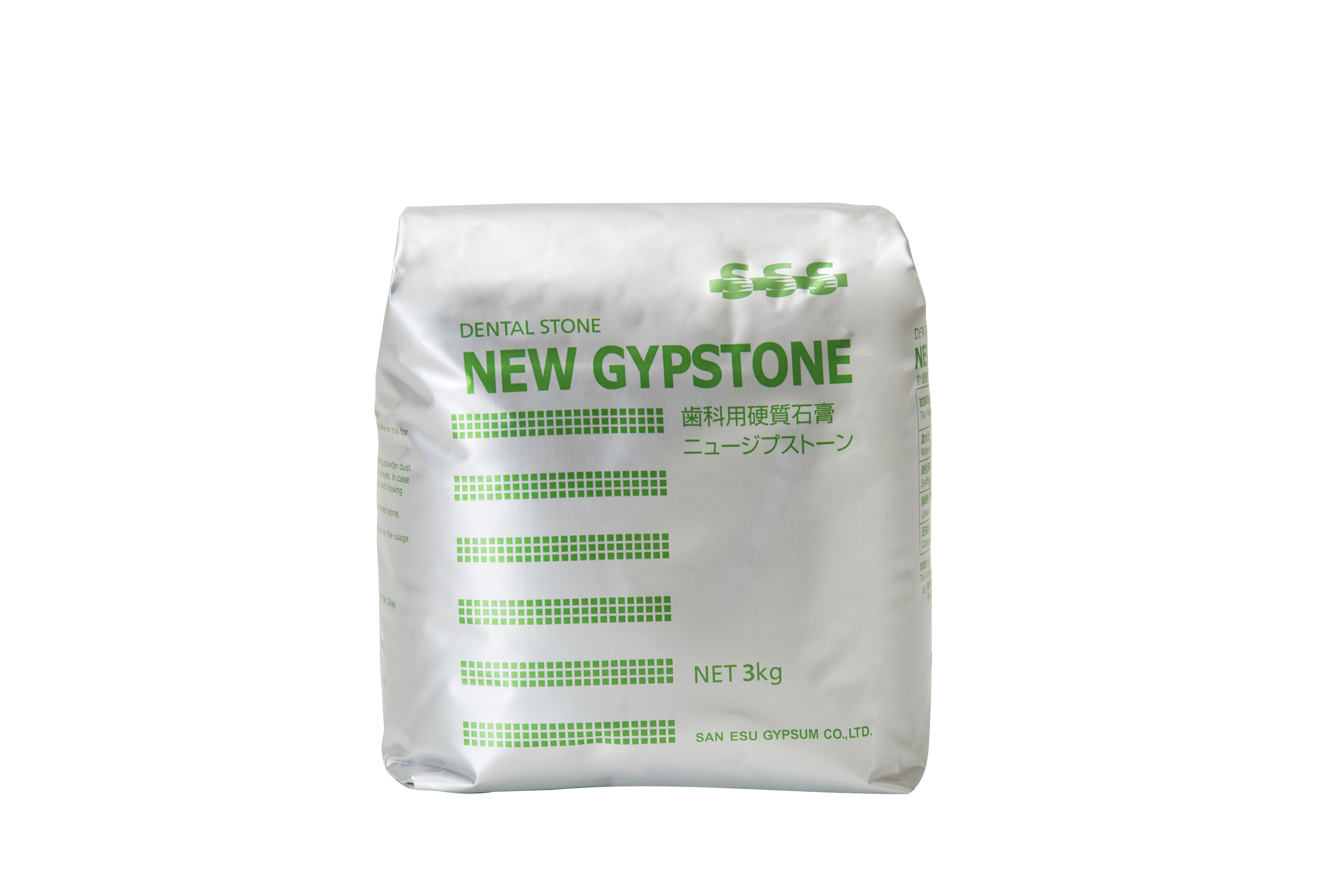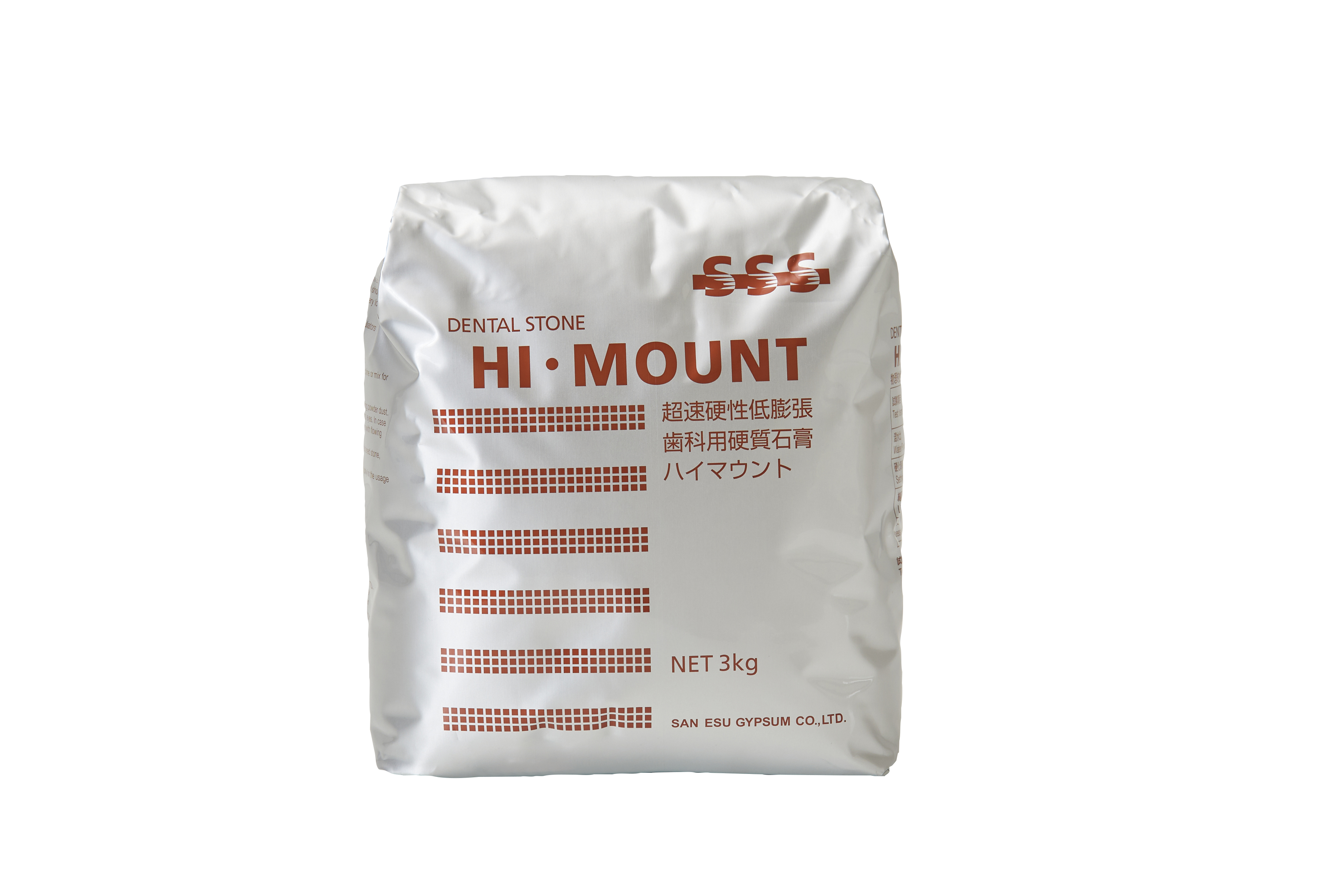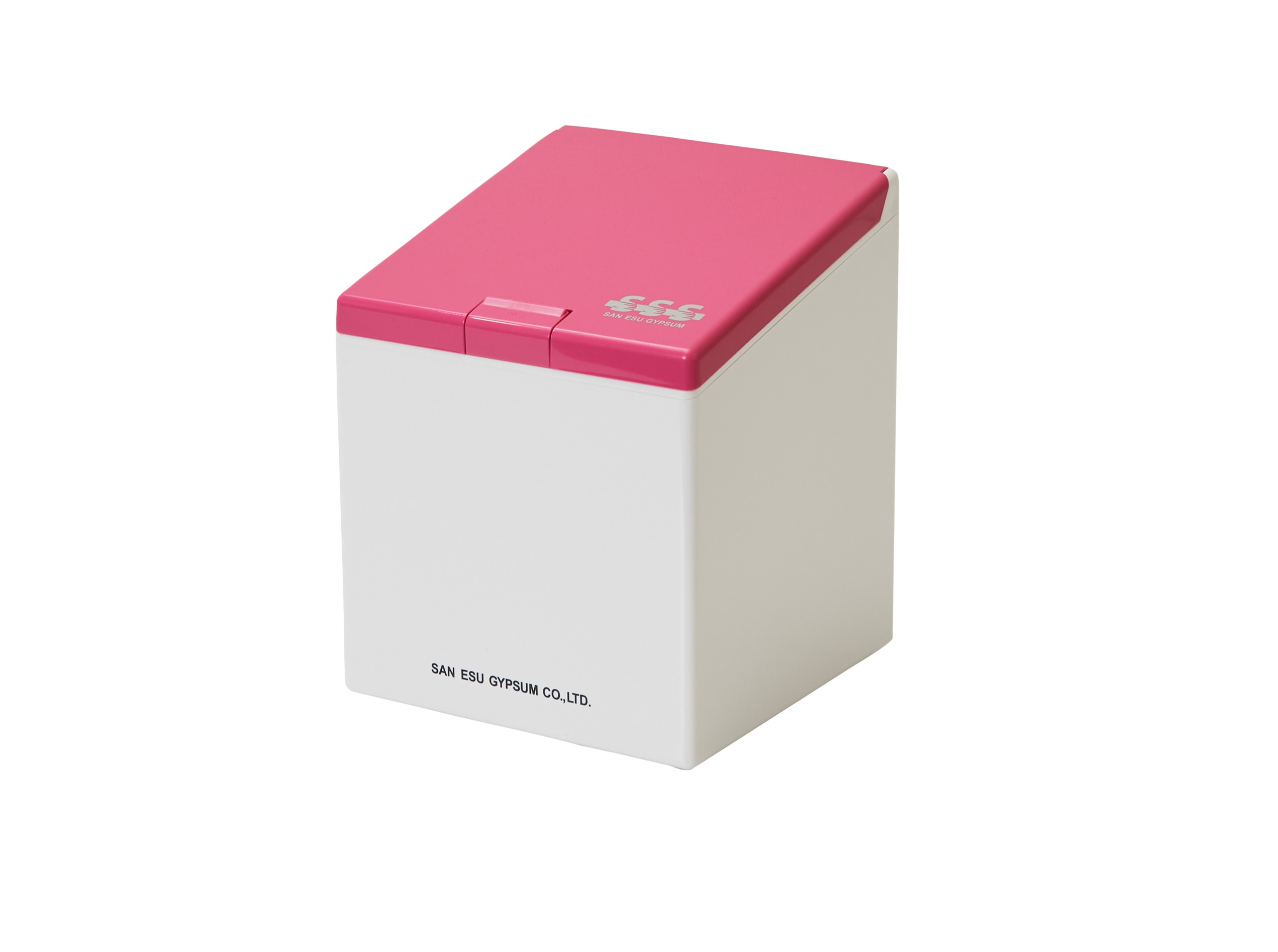Dental Stone for Special Uses : Gypstone GH
Gypstone GH is a high-expansion type dental stone with an expansion rate of 0.5%.
It can produces high-expansion models that prevent precision loss caused due to the shrinkage of acrylic
resin in complete dentures, thereby improving the fit of resin denture bases.
Applications
For making models for resin-based complete dentures and non-clasp dentures
Features
- High Expansion of 0.5%
- Gypstone GH has an expansion rate of 0.5%, which is higher than the conventional rate of 0.2% for dental stone.
The expansion rate is larger at 0.5% compared to the conventional dental stone rate of 0.2%. - Suitable for Resin Dentures
- Ideal for making working models for resin-based complete dentures, Gypstone GH When used as a working model for resin-based complete dentures, it compensates for resin shrinkage and produces well-fitting resin bases.
The working properties are similar to conventional dental stone, and it provides smooth models against various impression materials.
For investment, combining with New Lex or Pressure-Resistant Plaster MF (low expansion type) can produce better-fitting resin bases.
It offers similar working properties to conventional dental stone and yields smooth models with various impression materials.
For optimal results, combining it with New Lex or Pressure-Resistant Plaster MF (low expansion type) can enhance the fit of resin bases. - ompatible with Thermoplastic Resin
- Suitable for non-clasp dentures that do not use metal.
- Color
- Light green.
- Acrylic resin shrinks by 0.4-0.6% during polymerization.
Much of this shrinkage remains as strain after polymerization.
This is why it feels tight when the resin base is removed from the working model and then placed back.
The 0.5% high expansion compensates for this shrinkage, improving the precision on the mucosal surface and the fit on the palatal area. - After producing a wax denture with high expansion plaster compensating for resin shrinkage, using low expansion plaster for investment reduces tooth lifting and movement, thus improving occlusion accuracy and producing better-fitting resin bases.
Physical Properties
| Mixing Ratio | 0.23 |
|---|---|
| Setting Time | 10minutes |
| Linear Setting Expansion <2 Hours> | 0.50% |
| Compressive Strength <1 hour> | 37MPa |
Packaging Units
- 3kg aluminum bag in a cosmetic box
Usage and Dosage
- The standard is 23ml of water per 100g of powder. Reducing the water amount while maintaining operational consistency, will produce models with increased strength and hardness.
- The recommended mixing time is 30 seconds for vacuum mechanical mixing and 60 seconds for hand mixing.
Notification and Certification Numbers
| Until June 30, 2023 | 27B2X00022000020 |
| From July 1, 2023 | 28B2X10037000020 |
Related Products
-
- Can it be used for making impression models for inlays and crowns?Open
-
It is not recommended.
This product is developed for making models for resin-based complete dentures.
If used for inlays, they will result in a tight fit, and crowns will be loose compared to those made with conventional expansion stones.
It is not recommended to use Gypstone GH for making impression models for inlays and crowns.
This product is specifically developed for making models for resin-based complete dentures.
Using it for inlays may result in a tight fit, while crowns may be loose compared to those made with conventional expansion stones.
-
- Can it be used for partial dentures?Open
-
It is not available.
This is because, in the case of partial floors, they basically come with metal retaining devices (e.g. clasps).
However, it can be used for non-clasp partial dentures where the retainer is made of resin.
-
- Is the setting expansion uniform in both horizontal and vertical directions?Open
-
No, it is not.
The horizontal direction is smaller, and the vertical direction is larger without the resistance of the impression material.
The key to achieving uniform expansion is using a soft impression material and removing it from the impression as quickly as possible.
This trend is the same for other stones as well.
-
- Why is it colored?Open
- To make it easier to distinguish from the investment plaster during the production of resin-based complete dentures.
-
- Why does using Gypstone GH in a Reining system improve the fit?Open
- It compensates for the thermal shrinkage of the resin with a high expansion of 0.5%.
In the Ivocap system, it is also effective in compensating for polymerization shrinkage and thermal shrinkage.

